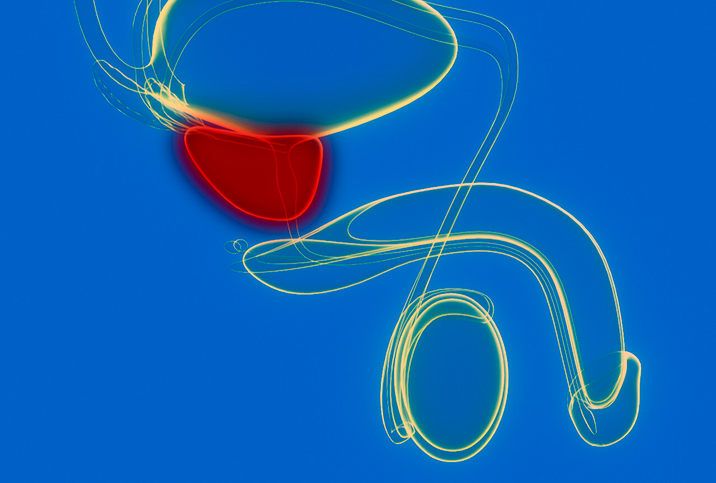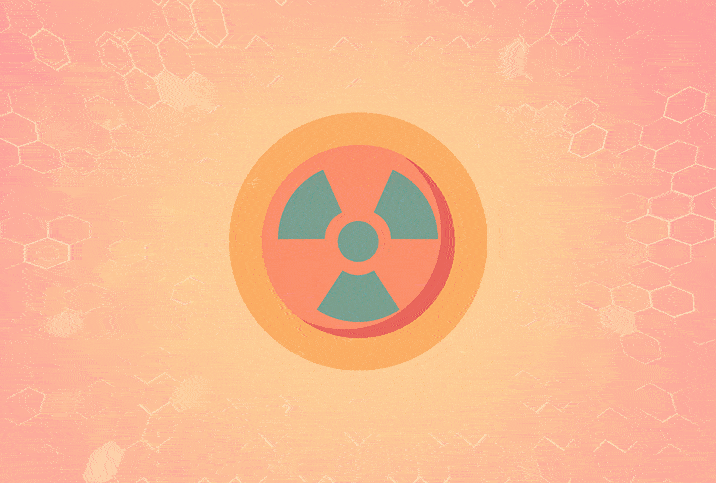Treatment Type Affects Sexual Function Post-Prostate Cancer

During the first year of prostate cancer remission, men have to adjust emotionally and physically to their new reality. One challenge is to deal with the mental health ramifications that come with experiencing a serious diagnosis. Those feelings of fear, anxiety and sadness can persist even after someone has been deemed cancer-free. Cancer obviously takes a toll on a man's physical and sexual health, too.
The prostate gland is part of the male reproductive system and can influence sexual function and fertility. Even though it's as tiny as a walnut, the prostate plays a big role in causing erections. Cancer treatment can affect the prostate's functionality, but fortunately, these conditions are often treatable over time.
A sex life free of prostate cancer
Most men experience difficulties getting an erection due to prostate cancer and even for a time after they're free of the disease. Each man faces different obstacles to sexual function based on the treatment they received.
Here are five of the more common treatments for prostate cancer:
Open prostatectomy
A prostatectomy is a surgical procedure for the partial or complete removal of the prostate.
Transurethral resection
Transurethral resection of the prostate (TURP) is a type of surgical procedure that involves cutting away a section of the prostate.
"During open prostatectomy and transurethral resection, the surgeon will try to spare the nerves that connect the prostate to the penis," said Tracy Gapin, M.D., a urologist based in Sarasota, Florida. "If the nerves stay intact, it can help the penis become erect even without a prostate."
Radical prostatectomy
Gapin said patients who undergo radical prostatectomy, which is more localized than open prostatectomy, generally experience an effect on their erections whether surgeons spare the nerves or not.
"They will have no ability to get a spontaneous erection and they will need some sort of treatment to help," he said. "The degree of this is really dependent on the surgery itself and if the nerves were able to be spared or not. However, even if they were spared, these patients will likely still need help anyway."
Radiation therapy
Men who have undergone radiation experience less of an effect on their erectile function during the first year after prostate cancer. They certainly experience some effect, but it tends to be longer term.
"In the first year, there may be minimal decline in sexual function, but that worsens over time. It's more of a slow burn, if you will," Gapin said.
Radiation therapy can cause damage to the local pelvic blood vessels and make arousal of the penile tissues more difficult, according to Aleece Fosnight, an Asheville, North Carolina-based certified physician assistant and medical advisor for Aeroflow Urology who specializes in sexual medicine and urology. She added that radiation can cause rectal irritation and pain with ejaculation.
Whether someone has undergone surgery or radiation to treat prostate cancer, they will need help with sexual function.
Hormone therapy
Hormone therapy, which helps treat cancer and turns off testosterone production in the body, is known to cause sexual problems.
"Most prostate cancer patients are put on androgen deprivation therapy, which is hormone therapy, which basically means medical castration," Gapin said.
Sex drive, ejaculation and orgasms can be difficult to maintain after hormone therapy.
Treatments for erectile dysfunction
Fosnight's practice offers a biopsychosocial approach to treating erectile dysfunction (ED).
"There is a huge psychological component to erectile difficulties, so only treating them with medication does not always solve the problem," she said, adding that during the first year after prostate cancer treatment, men typically start with oral medications such as tadalafil (Cialis) or sildenafil (Viagra) for both daily and as-needed use, with other medication options as necessary.
"In conjunction with medications, we also make a referral to our pelvic floor physical therapist," Fosnight said. "They are able to assess the entire pelvis and mobilize scar tissue acquired from radiation treatments, as well as assess pelvic floor muscles to maximize blood flow and optimize nerve sensitivity to improve erectile tissues."
A therapist definitely gets involved if relationship concerns, communication, grief counseling or acceptance are further components of a patient's erectile concerns.
"Further medical interventions can include urethral suppositories, penile injections and penile prostheses," she concluded.
Gapin said penile injections require the patient to use a small needle at home to inject their penis with medication, which stimulates an erection within 10 to 15 minutes or so.
Most of these treatments, such as medication and injections, are short-term solutions, so pelvic floor therapy can contribute to the long-term recovery of sexual function. All of these treatments typically occur after surgery, but they can also occur before the operation and while someone has prostate cancer.
Men most often experience erectile dysfunction in the first year after surgery; radiation tends to take longer to affect sexual function. The sooner they seek treatment for ED caused by cancer treatment, the more likely they'll see improvement in their sexual function.


















